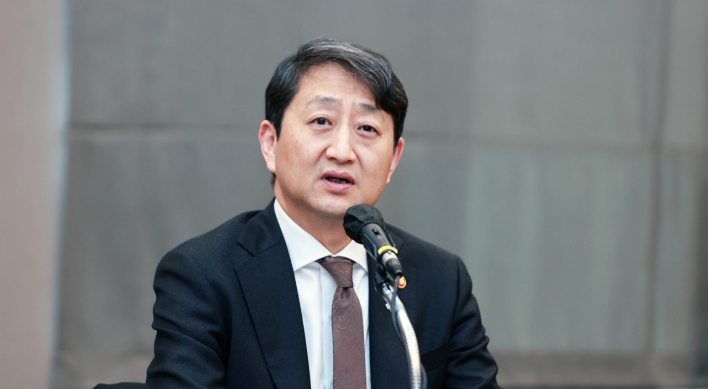SHANGHAI (AFP) - After Wang Lan delivered, she brought home a baby girl and her placenta, which she plans to eat in a soup -- adopting an age-old practice in Chinese traditional medicine.
The health-giving qualities of placenta are currently creating a buzz in Western countries, where some believe it can help ward off postnatal depression, improve breast milk supply and boost energy levels.
But placentophagy -- the practice of eating one‘s placenta after birth -- is relatively common in China, where it is thought to have anti-ageing properties, and dates back more than 2,000 years.
“It is in the refrigerator now and I am waiting for my mother to come and cook it to eat. After cleaning, it can be stewed for soup, without that fishy smell,” Wang said, adding she believed it would help her recover from delivery.
Qin Shihuang, the first emperor of a unified China, is said to have designated placenta as having health properties some 2,200 years ago, and during China’s last dynasty, the dowager empress Cixi was said to have eaten it to stay young.
A classic medical text from the Ming Dynasty (1368-1644) said placenta -- which lines the uterus and is key to the survival of the foetus -- was “heavily nutritious” and “if taken for the longer term... longevity will be achieved”.
China‘s state media says the practice of eating placenta has re-emerged over the past decade. One maternity hospital in the eastern city of Nanjing reported that about 10 percent of new parents took their placenta after childbirth.
Internet postings swap recipes on how to prepare placenta. One popular health website suggests soup, dumplings, meat balls or mixing it with other kinds of traditional Chinese medicine.
While trade in the organs has been banned since 2005, pills containing placentas ground into powder are legally available in Chinese pharmacies -- indicating unwanted placenta is somehow making its way to drug companies.
“It is a tonic to fortify the ’qi‘ and enrich the blood,” a traditional medicine doctor at Shanghai’s Lei Yun Shang pharmacy said, referring to the “life force” that practitioners believe flows through the body.
“Sales are very good. Basically, every time we have supplies, they sell out very quickly,” a clerk at the shop told AFP.
And it‘s not just mothers who want to eat the placenta.
One new father in Shanghai who did not want to be named said his relatives were eager to try the sought-after item. “My wife and I were still in the hospital... and they ate it,” he said.
But strong demand has created a thriving black market with hospitals, medical workers and even mothers selling placentas in violation of the law.
Last year, authorities investigated a hospital in the southern city of Guangzhou for selling placentas for 20 yuan ($2) apiece.
“They (nurses) take the money and use it to buy breakfast,” a source told a the local Xin Kuai newspaper.
They fetch a higher price in other parts of China like the eastern city of Jinan, where dealers ask as much as 300 yuan per placenta, most sourced from hospitals, the Jinan Times said last year.
Last month, South Korean customs said they had uncovered multiple attempts to illegally import over 17,000 capsules apparently containing the powdered flesh of dead babies.
Experts have said the pills may actually be made from human placenta, raising concerns that China’s trade in the organs has started to go international.
Some people, meanwhile, are averse to the idea of eating the organ.
“I know it‘s good for health, but the idea of eating human flesh is just disgusting. I cannot do it,” said Shanghai accountant Grace Jiang, who opted to leave the placenta after giving birth to her son.
<관련 한글 기사>
中 임산부들 자기 아이 ‘태반탕’으로 몸보신!
왕 란씨는 딸을 출산 한 후 딸과 함께 나온 태반을 탕으로 끓여 먹기 위해 집에 가져왔다. 태반탕을 끓여먹는 것은 중국에서 옛날부터 내려온 전통이다.
태반이 주는 건강상의 이점들은 서구사회에서도 관심이 높아지고 있다. 서양인들의 일부는 태반이 산후우울증을 예방하고 모유수유를 도우며 기를 보충해준다고 믿는다.
그러나 중국에서는 태반을 먹는 일이 흔하며 2천년동안 내려온 전통이다. 중국인들은 태반이 노화방지에 좋다고 생각한다.
왕 씨는 “지금 태반이 냉장고에 있으며 친정어머니가 와서 요리해줄 때 까지 기다리고 있다”고 말하며, 태반을 씻은 후 탕으로 끓이면 생선 냄새 같은 냄새 없이 먹을 수 있다고 설명했다. 그는 태반탕이 산후조리에 좋다고 믿는다.
중국 인터넷에는 태반의 요리법에 대해서도 자세히 나와있다. 인기 많은 한 웹사이트에 따르면 태반을 탕으로 만들어 만두, 미트볼이나 다른 약재들과 함께 끓이길 권장한다.
중국에서는 2005년부터 장기 거래가 금지됐지만 태반을 파우더로 갈아 캡슐형태로 만든 약들이 약국에서 합법적으로 판매되고 있다.
샹하이의 한 약사에 따르면 태반은 기를 보충하며 피를 풍부하게 해준다고 한다. 그는 태반약은 굉장히 인기가 좋아서 공급이 되는 대로 빨리 팔려 나간다고 전했다.
(코리아헤럴드)
The health-giving qualities of placenta are currently creating a buzz in Western countries, where some believe it can help ward off postnatal depression, improve breast milk supply and boost energy levels.
But placentophagy -- the practice of eating one‘s placenta after birth -- is relatively common in China, where it is thought to have anti-ageing properties, and dates back more than 2,000 years.
“It is in the refrigerator now and I am waiting for my mother to come and cook it to eat. After cleaning, it can be stewed for soup, without that fishy smell,” Wang said, adding she believed it would help her recover from delivery.
Qin Shihuang, the first emperor of a unified China, is said to have designated placenta as having health properties some 2,200 years ago, and during China’s last dynasty, the dowager empress Cixi was said to have eaten it to stay young.
A classic medical text from the Ming Dynasty (1368-1644) said placenta -- which lines the uterus and is key to the survival of the foetus -- was “heavily nutritious” and “if taken for the longer term... longevity will be achieved”.
China‘s state media says the practice of eating placenta has re-emerged over the past decade. One maternity hospital in the eastern city of Nanjing reported that about 10 percent of new parents took their placenta after childbirth.
Internet postings swap recipes on how to prepare placenta. One popular health website suggests soup, dumplings, meat balls or mixing it with other kinds of traditional Chinese medicine.
While trade in the organs has been banned since 2005, pills containing placentas ground into powder are legally available in Chinese pharmacies -- indicating unwanted placenta is somehow making its way to drug companies.
“It is a tonic to fortify the ’qi‘ and enrich the blood,” a traditional medicine doctor at Shanghai’s Lei Yun Shang pharmacy said, referring to the “life force” that practitioners believe flows through the body.
“Sales are very good. Basically, every time we have supplies, they sell out very quickly,” a clerk at the shop told AFP.
And it‘s not just mothers who want to eat the placenta.
One new father in Shanghai who did not want to be named said his relatives were eager to try the sought-after item. “My wife and I were still in the hospital... and they ate it,” he said.
But strong demand has created a thriving black market with hospitals, medical workers and even mothers selling placentas in violation of the law.
Last year, authorities investigated a hospital in the southern city of Guangzhou for selling placentas for 20 yuan ($2) apiece.
“They (nurses) take the money and use it to buy breakfast,” a source told a the local Xin Kuai newspaper.
They fetch a higher price in other parts of China like the eastern city of Jinan, where dealers ask as much as 300 yuan per placenta, most sourced from hospitals, the Jinan Times said last year.
Last month, South Korean customs said they had uncovered multiple attempts to illegally import over 17,000 capsules apparently containing the powdered flesh of dead babies.
Experts have said the pills may actually be made from human placenta, raising concerns that China’s trade in the organs has started to go international.
Some people, meanwhile, are averse to the idea of eating the organ.
“I know it‘s good for health, but the idea of eating human flesh is just disgusting. I cannot do it,” said Shanghai accountant Grace Jiang, who opted to leave the placenta after giving birth to her son.
<관련 한글 기사>
中 임산부들 자기 아이 ‘태반탕’으로 몸보신!
왕 란씨는 딸을 출산 한 후 딸과 함께 나온 태반을 탕으로 끓여 먹기 위해 집에 가져왔다. 태반탕을 끓여먹는 것은 중국에서 옛날부터 내려온 전통이다.
태반이 주는 건강상의 이점들은 서구사회에서도 관심이 높아지고 있다. 서양인들의 일부는 태반이 산후우울증을 예방하고 모유수유를 도우며 기를 보충해준다고 믿는다.
그러나 중국에서는 태반을 먹는 일이 흔하며 2천년동안 내려온 전통이다. 중국인들은 태반이 노화방지에 좋다고 생각한다.
왕 씨는 “지금 태반이 냉장고에 있으며 친정어머니가 와서 요리해줄 때 까지 기다리고 있다”고 말하며, 태반을 씻은 후 탕으로 끓이면 생선 냄새 같은 냄새 없이 먹을 수 있다고 설명했다. 그는 태반탕이 산후조리에 좋다고 믿는다.
중국 인터넷에는 태반의 요리법에 대해서도 자세히 나와있다. 인기 많은 한 웹사이트에 따르면 태반을 탕으로 만들어 만두, 미트볼이나 다른 약재들과 함께 끓이길 권장한다.
중국에서는 2005년부터 장기 거래가 금지됐지만 태반을 파우더로 갈아 캡슐형태로 만든 약들이 약국에서 합법적으로 판매되고 있다.
샹하이의 한 약사에 따르면 태반은 기를 보충하며 피를 풍부하게 해준다고 한다. 그는 태반약은 굉장히 인기가 좋아서 공급이 되는 대로 빨리 팔려 나간다고 전했다.
(코리아헤럴드)
-
Articles by Korea Herald



![[AtoZ Korean Mind] Does your job define who you are? Should it?](http://res.heraldm.com/phpwas/restmb_idxmake.php?idx=644&simg=/content/image/2024/05/06/20240506050099_0.jpg&u=)















![[K-pop's dilemma] Is Hybe-Ador conflict a case of growing pains?](http://res.heraldm.com/phpwas/restmb_idxmake.php?idx=642&simg=/content/image/2024/05/07/20240507050746_0.jpg&u=)